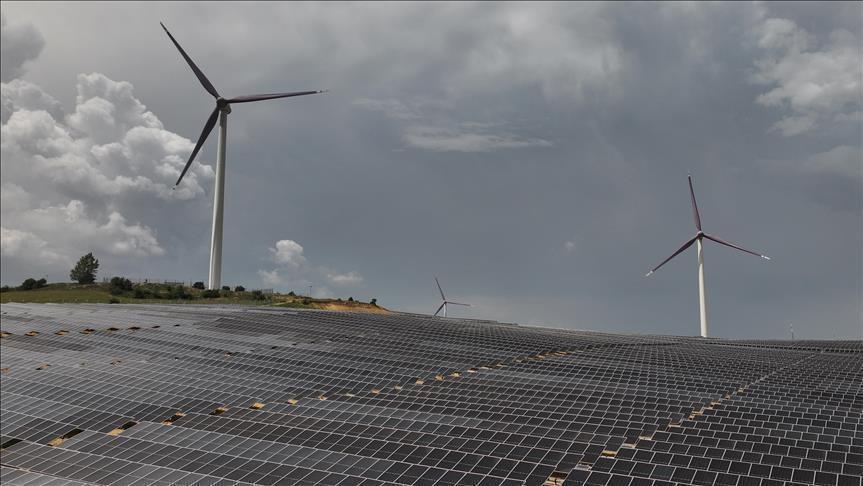The share of wind and solar energy in Türkiye’s total installed electricity capacity reached approximately 30% by the end of March, according to Türkiye’s Electricity Transmission Corporation (TEIAŞ) on Friday.
Meanwhile, Türkiye’s total electricity installed capacity reached 117,876 megawatts (MW) by the end of March.
Increasing energy demand due to Türkiye’s growing population, efforts to reduce the current account deficit caused by the importation of fossil fuels like oil and natural gas, and the drive to expand its industrial sector have accelerated investments, particularly in wind and solar energy.
Türkiye’s solar energy installed capacity was 16,700 MW at the end of March 2024, and by the end of this March, it had increased by 129% to reach 21,620 MW.
Meanwhile, wind energy installed capacity, which was 12,082 MW at the same period last year, increased by 108% to 13,098 MW by the end of March this year.
Thus, the total share of wind and solar energy in installed capacity, which was 25.7% at the end of March last year, reached 30% by the end of March 2025.
Commenting on Türkiye’s growing solar energy installations, Hakan Erkan, Secretary General of the Solar Energy Industrialists and Industry Association (GENSED), noted that most solar energy installations in Türkiye are carried out through unlicensed projects.
Erkan pointed out that capacities in licensed solar power plants are being allocated to storage-based plants, adding that ‘While the total unlicensed capacities amount to 22,000 MW, the capacity for licensed solar energy projects with storage has been allocated up to 15,000 MW. Solar energy will continue to grow in these two areas.’
He also highlighted that there will be large-capacity licensed power plant projects through Renewable Energy Resources Zones (YEKA) projects.
Erkan emphasized that, within the Turkish solar energy sector, there is a need for installations beyond large capacities.
‘In addition to these large capacities, there are medium- and small-scale investor groups who wish to invest in 1-2 MW projects,” he said, explaining that the association had presented a proposal to the ministry for those interested in investing in smaller capacities.
He added that the new proposal, if implemented, will allocate specific capacities for self-consumption projects.
‘Furthermore, the competitiveness of export-oriented firms in the energy sector will increase,’ he added.

